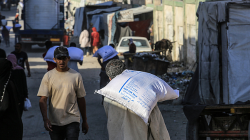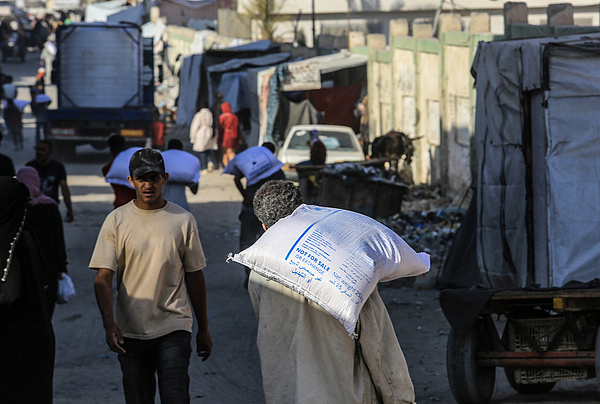UN Reports Gaza Humanitarian Crisis at Worst Level Since War Began
UN warns Gaza faces worst humanitarian crisis since October 2023 war, with airstrikes, malnutrition, and displacement overwhelming the region.


The United Nations has declared the humanitarian crisis in Gaza to be the most severe since hostilities erupted in October 2023, as relentless airstrikes, widespread malnutrition, mass displacement, and a collapse in public order push the enclave toward catastrophe. The warning comes as the region endures the cumulative effects of nearly 80 days under a strict blockade, with only minimal humanitarian assistance managing to reach its population of 2.1 million people.
Officials from the UN Office for the Coordination of Humanitarian Affairs (OCHA) reported that just five truckloads of aid were able to cross into Gaza on Thursday—the first successful delivery in four days—while another 60 trucks were forced to turn back due to intense fighting near the Kerem Shalom crossing. According to the UN, the area surrounding this critical entry point has seen a surge in activity by armed gangs operating in the so-called no man’s land nearby. Tragically, most of the urgently needed medical supplies delivered to Gaza's field hospital in Deir Al-Balah were looted soon after arrival.
OCHA emphasized that the scale of need in Gaza is now unprecedented. The limited deliveries of food, water, and medical supplies are “nowhere near sufficient,” leaving millions in dire need and making the situation especially desperate for vulnerable groups such as children. Despite these immense challenges, aid agencies continue to struggle against both logistical barriers and restrictions on what can enter Gaza, stretching their resources to the brink.
The destruction of health infrastructure has further intensified the crisis. The last partially functioning hospital in the north, Al Awda, was evacuated following repeated strikes, and attacks have continued across Deir al-Balah as well as the Al Bureij and An Nuseirat camps. In one incident this week, nine members of a journalist's family were killed and 15 others injured when their home was struck.
Aid workers themselves have not been spared from violence. An international organization running community kitchens reported five staff killed and two injured within two days. The UN has stressed that protection of civilians, including humanitarian workers, is an absolute necessity under international law.
Displacement continues unabated, with OCHA estimating that nearly 200,000 people have been forced from their homes in recent weeks. Israeli authorities have issued new orders affecting nearly one-third of Gaza’s territory, compounding existing challenges faced by those trying to find shelter and basic necessities. According to humanitarian partners, much of the movement currently seen within Gaza is driven by the search for food and vital resources rather than formal evacuation directives.
Amid the breakdown of order, aid supplies remain vulnerable to looting and theft. A recent incident saw armed individuals storm a field hospital warehouse, stealing large quantities of medical equipment and nutritional supplements crucial for treating malnourished children. “It is critical that those who stormed and looted the health facility be held accountable,” OCHA stated, underscoring the urgent need for more aid and safe distribution channels. The agency called for increased access through multiple crossings and major improvements in security for aid convoys.
Highlighting the responsibilities under international law, OCHA reaffirmed that Israel, as the occupying power, “bears the primary responsibility for restoring public order and safety” in Gaza. The office also recommended allowing civilian police to operate within the territory in accordance with established law enforcement standards. The humanitarian community reiterated calls for a full lifting of the blockade and for action to address the underlying causes of deprivation in Gaza.
Meanwhile, in the West Bank, OCHA raised alarms over a sharp rise in Israeli settler violence, reporting more than 220 Palestinians injured—an average of 44 per month, marking the highest rate in two decades. The recent establishment of a new settlement outpost led to the forcible displacement of the entire Bedouin community of Maghayer ad Deir. Movement restrictions imposed by Israeli authorities in the northern West Bank have disrupted access to healthcare, education, and livelihoods for nearly 90,000 residents, causing widespread hardship and forcing long detours for basic daily needs.
As conditions deteriorate on both sides of the blockade, humanitarian organizations warn that ensuring safe, unimpeded access to critical services and supplies for civilians must be the top priority. The international community continues to call for urgent action to alleviate suffering and protect lives, as the crisis in Gaza and the West Bank shows no sign of abating.




